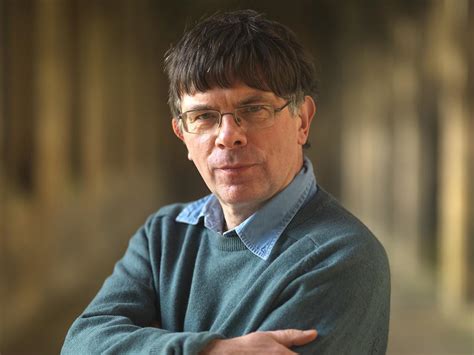Top 34 Quotes & Sayings by Simon Conway Morris
Explore popular quotes and sayings by a British scientist Simon Conway Morris.
Last updated on April 18, 2025.
If you go to the octopus, and if you're not too squeamish, dissect it. You'll find that it has a camera eye which is remarkable similar to our own. And yet we know that the octopus belongs to an invertebrate group called cephalopod mulluses, evolutionarily very distant indeed from the chordates to which we belong.
The long history of mankind is studded with convergences, perhaps most notably in social systems and the use of artefacts and technology. But for human history, set in the arrow of time, there appears to be one intolerable stumbling-block. This is the catastrophic failure in human values and decency.
Life's Solution builds a forceful case for the predictability of evolutionary outcomes, not in terms of genetic details but rather their broad phenotypic manifestations. The case rests on a remarkable compilation of examples of convergent evolution, in which two or more lineages have independently evolved similar structures and functions.
The underlying reason for convergence seems to be that all organisms are under constant scrutiny of natural selection and are also subject to the constraints of the physical and chemical factors that severely limit the action of all inhabitants of the biosphere. Put simply, convergence shows that in a real world not all things are possible.





















